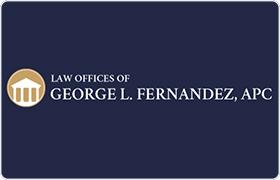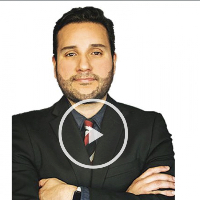Los Angeles County, CA White Collar Crime Lawyers, page 4
Sponsored Law Firm
-
 x
x

Click For More Info:
-
Law Offices of George L. Fernandez APC
444 Ocean Blvd Suite 800 Long Beach, CA 90802» view mapCriminal Defense Law Passion. Experience. Diligence.
George L. Fernandez is dedicated to competently, thoroughly, and diligently represent the best interest of his clients in a professional and ethical matter at all times.
800-970-2821
Kyle Raine Tracy
Litigation, Transportation & Shipping, White Collar Crime, Medical Malpractice, Class Action
Status: In Good Standing Licensed: 14 Years
David Patrick Vaughn
Education, White Collar Crime, Criminal, Business
Status: In Good Standing Licensed: 37 Years
Mark Jacob Werksman
Federal Appellate Practice, Gift Taxation, White Collar Crime, Criminal
Status: In Good Standing Licensed: 39 Years
Mark Steven Hardiman
Litigation, Health Care Other, White Collar Crime, Business
Status: In Good Standing Licensed: 36 Years
Jackie-Lynn Adams
Immigration, White Collar Crime, Criminal, Personal Injury
Status: In Good Standing Licensed: 15 Years
Lisa Danielle Angelo
Litigation, White Collar Crime, Elder Law, Medical Malpractice
Status: In Good Standing
Rose Fay Arfa
Federal Appellate Practice, White Collar Crime, Criminal, Children's Rights
Status: In Good Standing Licensed: 43 Years
Grace Erlene Ayers
Family Law, White Collar Crime, Civil Rights, Administrative Law
Status: In Good Standing Licensed: 15 Years
Sara Azari
White Collar Crime, Criminal, Administrative Law
Status: In Good Standing Licensed: 19 Years
Jeffrey Lewis Bear
White Collar Crime, Medical Malpractice, Health Care, Mass Torts, Products Liability
Status: In Good Standing Licensed: 53 Years
 George Fernandez Long Beach, CA
George Fernandez Long Beach, CA Practice AreasExpertise
Practice AreasExpertise
